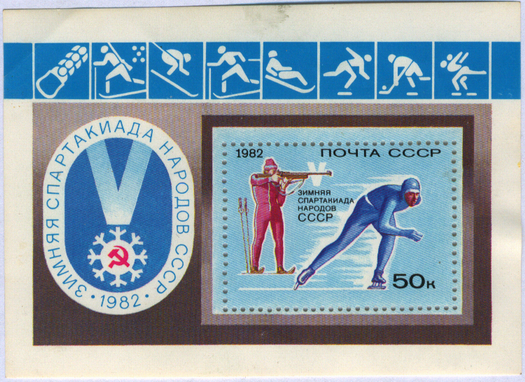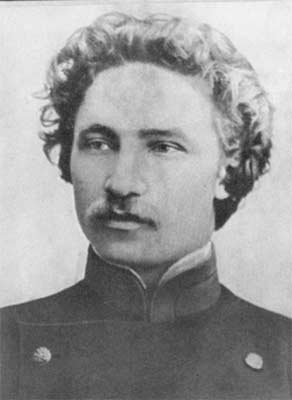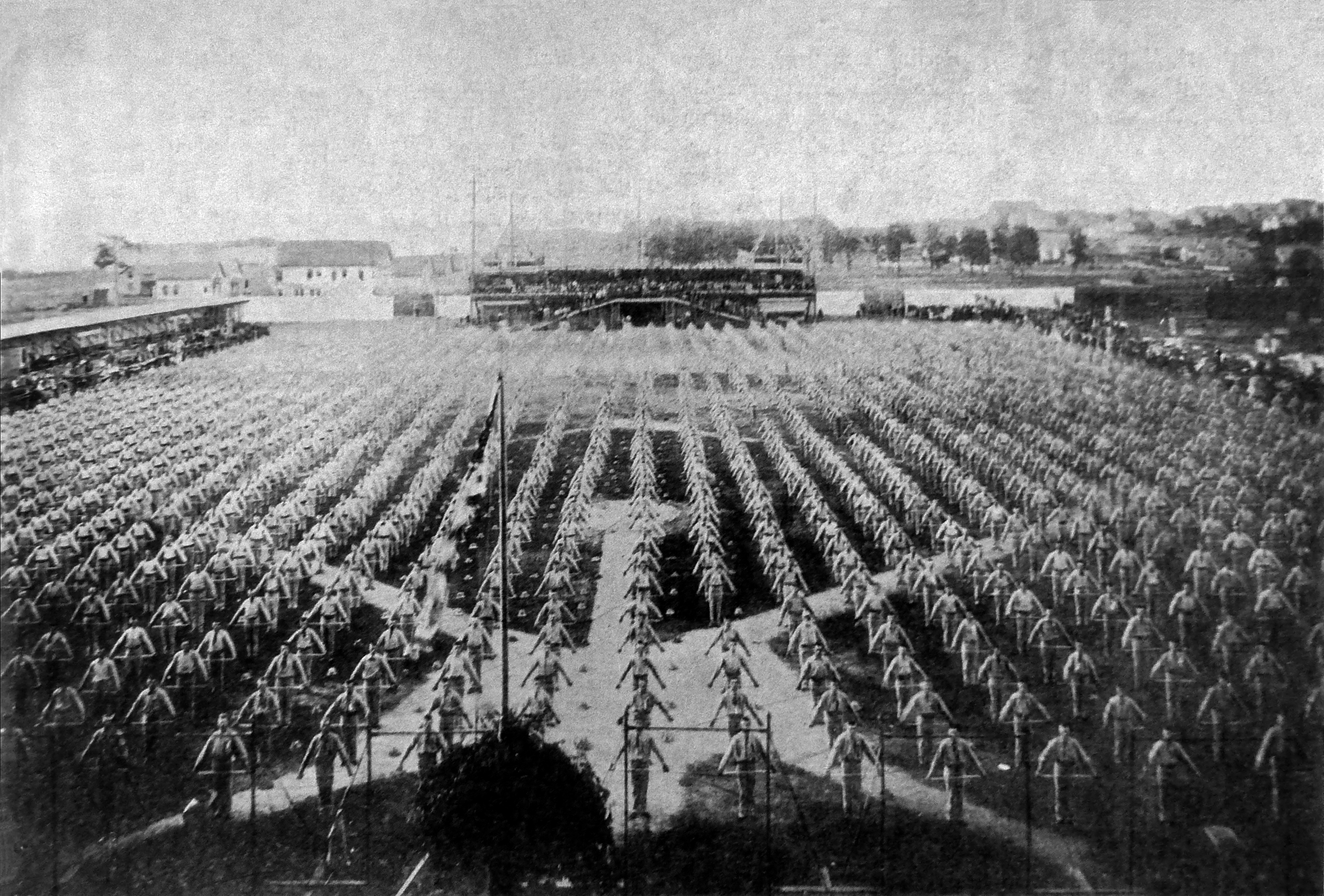|
Spartakiad
The Spartakiad (or Spartakiade) was an international sports event that was sponsored by the Soviet Union. Five international Spartakiades were held from 1928 to 1937. Later Spartakiads were organized as national sport events of the Eastern Bloc countries. The games were organised by Red Sport International. Background The Soviet Union attempted to use Spartakiads to both oppose and supplement the Olympics. In Russian, there is a certain parallelism in the names: "Spartakiada" and "Olimpiada". The name, derived from the name of the slave rebel leader, Spartacus, Great Soviet Encyclopedia, 3rd edition, volume 24 (part 1), p. 286, Moscow, Sovetskaya Entsiklopediya publisher, 1976 was intended to symbolize proletarian internationalism. As a classical figure, Spartacus also stood directly in contrast to the aristocratic nature of the Ancient Olympic Games on which the modern "capitalist" Olympics were based. The first Winter Spartakiad was held in February 1928 in Oslo, and ... [...More Info...] [...Related Items...] OR: [Wikipedia] [Google] [Baidu] |
Spartakiad Of The Peoples Of The USSR
The Spartakiad of Peoples of the USSR (, Spartakiada narodov SSSR; ; ) were mass multi-event competitions in the Soviet Union in 1956–1991, descendants of the 1928 All-Union Spartakiad that took place in Moscow. The competitions were designed to be conducted between constituent Republics of the Soviet Union, union republics of the Soviet Union, but the Russian Soviet Federative Socialist Republic, Russian SFSR was always represented by three teams, the Russian Soviet Federative Socialist Republic, RSFSR itself as a whole along with separate teams from its main two cities, Moscow and Saint Petersburg, Leningrad. The Moscow team was the most successful performer at the Spartakiad of Peoples of the USSR. Summer editions were always held in Moscow and winter editions held four times in Yekaterinburg, Sverdlovsk, twice in Krasnoyarsk and once in Kiev. There were ten summer Spartakiads and seven winter Spartakiads. Background In 1952, the Soviet Union decided to join the Olympic move ... [...More Info...] [...Related Items...] OR: [Wikipedia] [Google] [Baidu] |
Spartakiad (Czechoslovakia)
The Spartakiads or Spartakiades in Czechoslovakia (Czech and ) were mass gymnastics events, designed to celebrate the Red Army's liberation of Czechoslovakia in 1945. The name refers to the 1921 Prague Spartakiad organised by the Communist Party of Czechoslovakia. They were organised by the Communist government as a replacement of the similar Sokol gatherings, which were disapproved by the regime and discontinued after World War II. The Spartakiads took place at the Strahov Stadium, the largest stadium ever built and the venue of the last pre-war Sokol gathering. Most of the organisers of the Spartakiads were former Sokol officials. History The first Spartakiad took place in 1955, and was subsequently held every five years. The Spartakiad scheduled for 1970 was canceled in the wake of the Prague Spring and the beginning of normalization. Preparations for the 1990 Spartakiad were interrupted by the Velvet Revolution, but the event still took place as the "Prague Sports Games ... [...More Info...] [...Related Items...] OR: [Wikipedia] [Google] [Baidu] |
Red Sport International
The International Association of Red Sports and Gymnastics Associations, commonly known as Red Sport International (RSI) or Sportintern was a Comintern-supported international sports organization established in July 1921. The RSI was established in an effort to form a rival organization to already existing "bourgeois" and social democratic international sporting groups. The RSI was part of a physical culture movement in Soviet Russia linked to the physical training of young people prior to their enlistment in the military. The RSI held 3 summer games and 1 winter games called "Spartakiad" in competition with the Olympic Games of the International Olympic Committee before being dissolved in 1937. Organizational history Background The notion of a separate working class national athletic federation emerged first in Germany during the decade of the 1890s, when a Workers Gymnastics Association was established by activists in the socialist movement in opposition to the nationalist ... [...More Info...] [...Related Items...] OR: [Wikipedia] [Google] [Baidu] |
Strahov Stadium
The Great Strahov Stadium () is a stadium in the Strahov district of Prague, Czech Republic. It was built for displays of synchronized gymnastics on a massive scale, with a field three times as long and three times as wide as the standard association football pitch. Its capacity of 250,000 spectators (56,000 seated) made it larger than any current or former sports stadium, and the second largest sports venue ever. the stadium is no longer in use for competitive sports events. It is a training centre for Sparta Prague and hosts pop and rock concerts. The stadium is located on Petřín Hill, overlooking the old city. It can be accessed by taking the Petřín funicular up the hill through the gardens, or by taking tram lines 22, 23, or 25 to Malovanka station. Construction Construction began based on plans by the architect Alois Dryák, on a wooden stadium in 1926, which was replaced by concrete grandstands in 1932. Further construction occurred in 1948 and 1975. The playi ... [...More Info...] [...Related Items...] OR: [Wikipedia] [Google] [Baidu] |
Czechoslovakia
Czechoslovakia ( ; Czech language, Czech and , ''Česko-Slovensko'') was a landlocked country in Central Europe, created in 1918, when it declared its independence from Austria-Hungary. In 1938, after the Munich Agreement, the Sudetenland became part of Nazi Germany, while the country lost further territories to First Vienna Award, Hungary and Trans-Olza, Poland (the territories of southern Slovakia with a predominantly Hungarian population to Hungary and Zaolzie with a predominantly Polish population to Poland). Between 1939 and 1945, the state ceased to exist, as Slovak state, Slovakia proclaimed its independence and Carpathian Ruthenia became part of Kingdom of Hungary (1920–1946), Hungary, while the German Protectorate of Bohemia and Moravia was proclaimed in the remainder of the Czech Lands. In 1939, after the outbreak of World War II, former Czechoslovak President Edvard Beneš formed Czechoslovak government-in-exile, a government-in-exile and sought recognition from the ... [...More Info...] [...Related Items...] OR: [Wikipedia] [Google] [Baidu] |
Mass Gymnastics
Mass games, or mass gymnastics, are a form of performing arts or gymnastics in which large numbers of performers take part in a highly regimented performance that emphasizes group dynamics rather than individual prowess. North Korea Mass games, such as the Arirang Mass Games, are performed annually in North Korea, at the Rungrado May Day Stadium, to celebrate national holidays such as the birthdays of former rulers Kim Il-sung and Kim Jong-il. In the 1990s, they were also held at the Kim Il-sung Stadium and the Pyongyang Gymnasium. North Korean mass games typically feature over 100,000 participants in a 90-minute display of gymnastics, dance, acrobatics, and dramatic performance, accompanied by music and other effects, all wrapped in a highly politicized package. Per Kim Jong-il: Mass gymnastics exhibit the North Korean idea of ''ilsim-dangyeol'' (single-minded unity) as well as nationalism. The 2004 British documentary film '' A State of Mind'' follows two child gy ... [...More Info...] [...Related Items...] OR: [Wikipedia] [Google] [Baidu] |
Olympic Games
The modern Olympic Games (Olympics; ) are the world's preeminent international Olympic sports, sporting events. They feature summer and winter sports competitions in which thousands of athletes from around the world participate in a Multi-sport event, variety of competitions. The Olympic Games, Open (sport), open to both amateur and professional athletes, involves more than 200 teams, each team representing a sovereign state or territory. By default, the Games generally substitute for any world championships during the year in which they take place (however, each class usually maintains its own records). The Olympics are staged every four years. Since 1994 Winter Olympics, 1994, they have alternated between the Summer Olympic Games, Summer and Winter Olympics every two years during the four-year Olympiad. Their creation was inspired by the ancient Olympic Games, held in Olympia, Greece, from the 8th century BC to the 4th century AD. Baron Pierre de Coubertin founded the Int ... [...More Info...] [...Related Items...] OR: [Wikipedia] [Google] [Baidu] |
Spartacus
Spartacus (; ) was a Thracians, Thracian gladiator (Thraex) who was one of the Slavery in ancient Rome, escaped slave leaders in the Third Servile War, a major Slave rebellion, slave uprising against the Roman Republic. Historical accounts of his life come primarily from Plutarch and Appian, who wrote more than a century after his death. Plutarch's ''Life of Marcus Licinius Crassus, Crassus'' and Appian's ''Civil Wars'' provide the most comprehensive details of the slave revolt. Despite being a significant figure in Roman history, no contemporary sources exist, and all accounts were by those not directly involved, significantly later, and without perspectives from slaves or eyewitnesses. Little is known about him beyond the events of the war, and surviving accounts are contradictory. All sources agree he was a former gladiator and accomplished military leader. Spartacus is described as a Thracian by birth, possibly from the Maedi tribe. Before his enslavement and role as a gl ... [...More Info...] [...Related Items...] OR: [Wikipedia] [Google] [Baidu] |
Friendship Games
The 1984 Friendship Games, or Friendship-84 (, ''Druzhba-84''), was an international multi-sport event held between 2 July and 16 September 1984 in the Soviet Union and eight other Eastern Bloc states which boycotted the 1984 Summer Olympics in Los Angeles. Although Friendship Games officials denied that the Games were a counter-Olympic event to avoid conflicts with the International Olympic Committee, the competition was often dubbed the Soviet Bloc's "alternative Olympics". Some fifty states took part in the competition. While the boycotting countries were represented by their strongest athletes, other states sent their reserve teams, consisting of athletes who failed to qualify for the games in Los Angeles. Background On 8 May 1984, less than three months before the 1984 Summer Olympics were scheduled to begin, the Soviet Union announced its decision to boycott the Games, citing lack of security for Soviet athletes in Los Angeles. The TASS news agency further accused th ... [...More Info...] [...Related Items...] OR: [Wikipedia] [Google] [Baidu] |
Eastern Bloc
The Eastern Bloc, also known as the Communist Bloc (Combloc), the Socialist Bloc, the Workers Bloc, and the Soviet Bloc, was an unofficial coalition of communist states of Central and Eastern Europe, Asia, Africa, and Latin America that were aligned with the Soviet Union and existed during the Cold War (1947–1991). These states followed the ideology of Marxism–Leninism, in opposition to the Capitalism, capitalist Western Bloc. The Eastern Bloc was often called the "Second World", whereas the term "First World" referred to the Western Bloc and "Third World" referred to the Non-Aligned Movement, non-aligned countries that were mainly in Africa, Asia, and Latin America but notably also included former Tito–Stalin split, pre-1948 Soviet ally Socialist Federal Republic of Yugoslavia, Yugoslavia, which was located in Europe. In Western Europe, the term Eastern Bloc generally referred to the USSR and Central and Eastern European countries in the Comecon (East Germany, Polish Peo ... [...More Info...] [...Related Items...] OR: [Wikipedia] [Google] [Baidu] |
Postage Stamp
A postage stamp is a small piece of paper issued by a post office, postal administration, or other authorized vendors to customers who pay postage (the cost involved in moving, insuring, or registering mail). Then the stamp is affixed to the face or address-side of any item of mail—an envelope or other postal cover (e.g., packet, box, mailing cylinder)—which they wish to send. The item is then processed by the postal system, where a postmark or Cancellation (mail), cancellation mark—in modern usage indicating date and point of origin of mailing—is applied to the stamp and its left and right sides to prevent its reuse. Next the item is delivered to its address. Always featuring the name of the issuing nation (with the exception of the Postage stamps and postal history of the United Kingdom, United Kingdom), a denomination of its value, and often an illustration of persons, events, institutions, or natural realities that symbolize the nation's traditions and values, every ... [...More Info...] [...Related Items...] OR: [Wikipedia] [Google] [Baidu] |
Berlin
Berlin ( ; ) is the Capital of Germany, capital and largest city of Germany, by both area and List of cities in Germany by population, population. With 3.7 million inhabitants, it has the List of cities in the European Union by population within city limits, highest population within its city limits of any city in the European Union. The city is also one of the states of Germany, being the List of German states by area, third smallest state in the country by area. Berlin is surrounded by the state of Brandenburg, and Brandenburg's capital Potsdam is nearby. The urban area of Berlin has a population of over 4.6 million and is therefore the most populous urban area in Germany. The Berlin/Brandenburg Metropolitan Region, Berlin-Brandenburg capital region has around 6.2 million inhabitants and is Germany's second-largest metropolitan region after the Rhine-Ruhr region, as well as the List of EU metropolitan areas by GDP, fifth-biggest metropolitan region by GDP in the European Union. ... [...More Info...] [...Related Items...] OR: [Wikipedia] [Google] [Baidu] |







